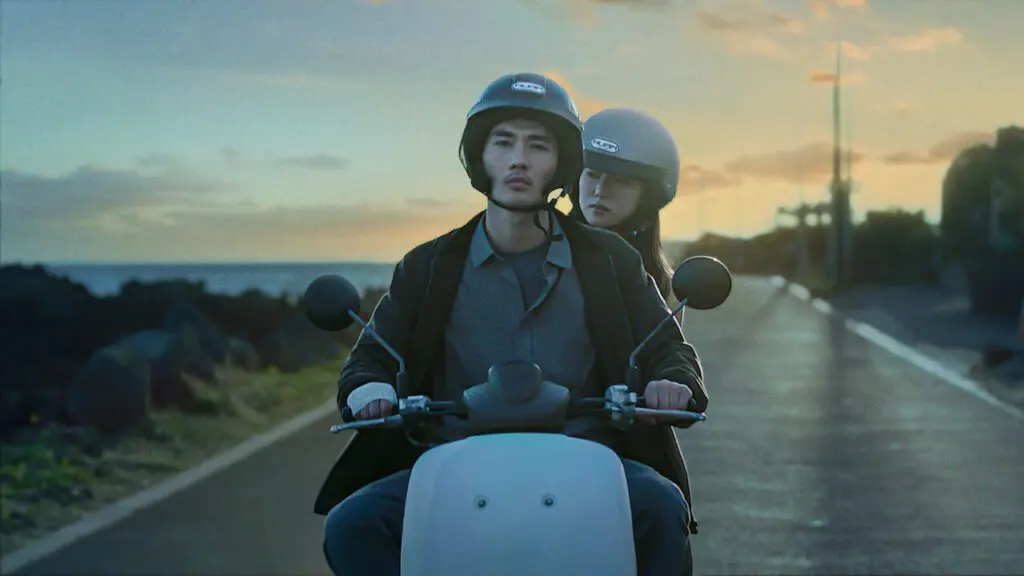Summary
Brutal, stylish, and compelling, Park Hoon-jung’s Night in Paradise offers plenty of pleasures for the strong-stomached.
Setting a gritty, bloodthirsty crime drama on the idyllic island of Jeju is the first of many idiosyncrasies in Park Hoon-jung’s Night in Paradise (also directed The Tyrant). Another is an aching earnestness paired with a B-movie level of excess in the many scenes of action and death.
If the film’s fascination with gore and brutality is intended as a point about the savagery of the world it’s set in, then I don’t think it makes it, but if you’re in the market to see a gangster headbutt someone almost to death, then you’re in the right place.
Said gangster is Tae-gu (Um Tae-goo), a ruffian operating on mainland Seoul under the auspices of Yang Do-soo (Park Ho-san – as seen in Unlocked), and he’s evidently good enough at his job to be headhunted by the Bukseong gang, whose attempts to recruit him lead to the deaths of Tae-gu’s sister and niece when he refuses.
Out for revenge, Tae-gu makes the obvious error of going after the Bukseong’s head honcho, causing an inter-gang calamity from which he attempts to hide on Jeju before eventually fleeing to Russia.
During his period of seclusion, though, Tae-gu meets Jae-yeon (Jeon Yeo-been – as seen in Glitch), the terminally ill daughter of the arms dealer putting him up, and thus begins an understated getting-to-know-you period that sometimes plays like a road trip, sometimes like a romance, and sometimes like the idle imaginings of a serial killer.
The quieter scenes of Night In Paradise probably shouldn’t work given how they’re sandwiched between scenes of uncompromising brutality, but you’ve got the performances of Um Tae-goo and Jeon Yeo-been to thank for the fact they do.
The latter, particularly, is able to so completely embody the role of a young woman who has become totally apathetic towards her life and impending demise that I almost researched her medical status.
It’s an odd dynamic, that between someone resigned to accepting their death and someone willing to do anything to avoid theirs, and the theme of mortality stands in stark contrast to how cavalier gangster movies tend to be about it.
This, perhaps, is why Night In Paradise goes so all out with its attention-grabbing action sequences, including a standout car chase and a final ten minutes that spills more blood and catches more bodies than any film in recent memory.
Death tends to mean something in this film, even if it’s just that audiences will be watching from behind their fingers. It never comes without cost, either; the entire plot is set in motion by the loss of life, and its machinery only stops grinding once there’s really nobody left alive to even tell a story about.
The question is whether the action, while well done, descends into needless gratuity. I’m tempted to say it does, but only if you’re expecting the film to really make good on its thematic promise.
Once you get over the fact that it’s a bit too bonkers to be taken all that seriously, it’s much easier to enjoy the facile pleasures of its expertly constructed action sequences, and believe me, there are many pleasures to be had if you’ve got the stomach for it.
Read More: Night in Paradise Ending Explained




